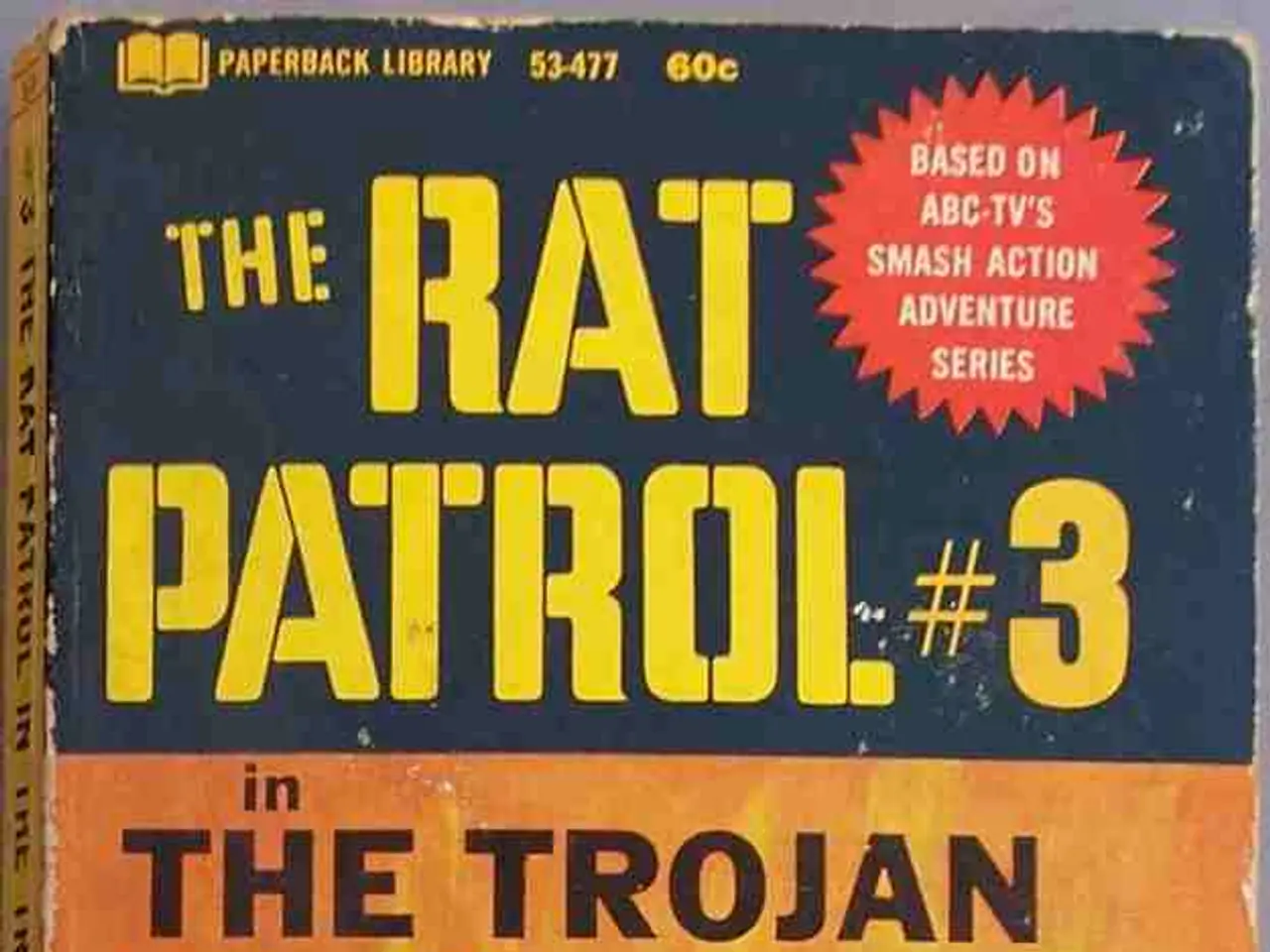Expansion of Mandatory Draft Gains Momentum - Most Voters Support Compulsory Enlistment
The Pressure Grows:
Amid looming threats from Russia, the Union is pressing the SPD to make a swift decision on reinstating conscription. Thorsten Frei, Chief of Staff, tells DPA, "We're running out of time, and the black-red coalition needs to agree on a change in strategy to achieve the goal everyone can see." The objective is to dramatically increase the Bundeswehr, with Defense Minister Boris Pistorius estimating an additional 50,000 to 60,000 soldiers required, currently standing at slightly over 180,000.
Klingbeil Prepares for Change
SPD leader Lars Klingbeil seeks to initially focus on voluntary service, offering incentives like a free driver's license. However, he's ready to prepare for compulsory service, stating, "We must create the conditions suitable for compulsory conscription."
Klingbeil's stance sparks controversy within his party, setting up a tense party conference next week. The coalition agreement states a military service that's "initially based on voluntariness," leading SPD parliamentary group leader Matthias Miersch to interpret this as a delay in reintroducing conscription before the next federal election.
Juso Chairman Speaks Up
Philipp Türmer, Juso chairman, points to the coalition agreement and disapproves of preparations for conscription. "The SPD is committed to voluntariness, as is the coalition agreement. Preparing for compulsion is not appropriate," he told Spiegel. Türmer perceives conscription as an outdated solution that unfairly interferes with young people's lives.
Recollections of the Past
Klingbeil asserts, "There will be no return to the old conscription, where all 18-year-olds were drafted." However, this wasn't entirely accurate before the suspension of conscription in 2011, as the numbers of those discharged had skyrocketed in preceding years, and a large portion among those deemed fit for the Bundeswehr were no longer drafted[3].
Pistorius Demands Expansion
To achieve Pistorius' needs assessment for the force to grow to 230,000 to 240,000 soldiers, it's questionable whether voluntary recruitment is feasible. Frei observes, "We must first decide when we aim to reach the new target size, and then consider how long we have to achieve this goal through voluntary enlistment. My personal assessment is that we don't have time for that because the threat situation is so intense."
Public Opinion Divides
A survey by YouGov indicates a majority (54%) of Germans support reintroducing conscription, with 36% favoring mandatory service for both men and women, and 18% backing conscription for men only[2]. However, 40% think military service should remain voluntary, while 6% declined to respond.
To extend conscription to women, the Basic Law would require a two-thirds majority, including Green and Left support. The Left party fundamentally opposes conscription, while CDU and CSU, SPD, and AfD voters predominantly back conscription. Opposition to conscription is particularly high among the younger generation, with 63% of those aged 18 to 29 opposing mandatory service[2].
Resistance Against Plans
Sören Pellmann, leader of the Left parliamentary group, criticizes the military expansion plans, arguing, "The youth will bear the consequences of this further militarization of society, and rightfully reject the return to conscription by a large majority."
Base Article: Berlin (dpa) - In light of the growing threat from Russia, the Union is increasing pressure on coalition partner SPD to decide on a return to conscription as soon as possible. "We don't have time to wait until doomsday," said Chief of Staff Thorsten Frei in an interview with Deutsche Presse-Agentur. The black-red coalition must reach a clear agreement on 'when we need to change our strategy to achieve the widely recognized goal.' The goal is to significantly expand the Bundeswehr in response to the threat situation. Defense Minister Boris Pistorius estimates the need for an additional 50,000 to 60,000 soldiers - currently, there are slightly over 180,000. Klingbeil ready for preparations on conscription, Juso chairman: 'No solution for the future,' Pistorius demands expansion to up to 240,000 soldiers, Survey: 54 percent for return to conscription
Enrichment Data: The current stance of various political parties in Germany regarding the potential reintroduction of conscription in response to the growing threat from Russia reflects significant divisions, largely shaped by the coalition government dynamics and internal party debates. Coalition Government (CDU and SPD) - Christian Democratic Union (CDU) under Chancellor Friedrich Merz is strongly in favor of strengthening the Bundeswehr, aiming to make it 'the strongest conventional army in Europe,' and has pushed for a substantial military expansion in response to the Russia threat[3]. The CDU has advocated the reintroduction of a form of military service to boost troop numbers. However, rather than reinstating traditional conscription outright, the coalition agreement with the Social Democratic Party (SPD) proposes a new, voluntary recruitment model inspired by Sweden, where 18-year-olds receive eligibility questionnaires and a percentage are invited to join the Bundeswehr[1]. This approach is seen as more politically acceptable than full conscription. Social Democratic Party (SPD) - officially supports the voluntary military service scheme agreed upon with the CDU but is internally divided and more cautious about rearmament. Some prominent SPD figures have openly revolted against the rapid militarization and have emphasized remaining aligned with the peace movement, pushing back against discussions about returning to conscription and preparing for ground wars[5]. The SPD leadership tries to downplay the scale of rearmament compared to the previous government but faces pressure within the party from members who oppose increasing militarization[3][5]. Other Political Parties - The Greens, Germany's second-largest opposition party, have enthusiastically supported the CDU's moves to increase military assistance to Ukraine and strengthen the Bundeswehr, including advocating for the supply of advanced weapons like the Taurus missile system[3]. While generally associated with pacifist tendencies in the past, the Greens now back stronger defensive measures in face of Russia's aggression. Public Opinion Context - Among the German youth, there is considerable opposition to the return of mandatory military service, with a YouGov poll indicating that 63% of Germans aged 18 to 29 oppose conscription, and only 19% willing to fight if called up[2]. This public sentiment adds political complexity, particularly for parties like the SPD concerned about electoral consequences.
Summary: In Germany, the Union is pushing the SPD to decide on reinstating conscription to defend against Russia. The current stance of various political parties in this struggle reflects significant divisions, shaped by the coalition government dynamics and internal party debates. The CDU is in favor of strengthening the Bundeswehr and favors a voluntary military service scheme as a compromise, while the SPD supports voluntary service but internally opposes rapid militarization. The Greens back stronger defensive measures in the face of Russia's aggression, while the German youth predominantly oppose mandatory conscription.
- The ongoing debate about war-and-conflicts and policy-and-legislation regarding the potential reintroduction of conscription in Germany is a significant point of politics, with the SPD leaning towards voluntary service while facing pressure from the Union and Defense Minister Boris Pistorius for a larger Bundeswehr.
- Amidst the general-news discussion about the Germany's military expansion and the threat from Russia, various political parties such as the SPD, CDU, Greens, and Left, hold differing views, with a majority of Germans supporting the return of conscription while the younger generation and parties like the Left actively oppose it.





